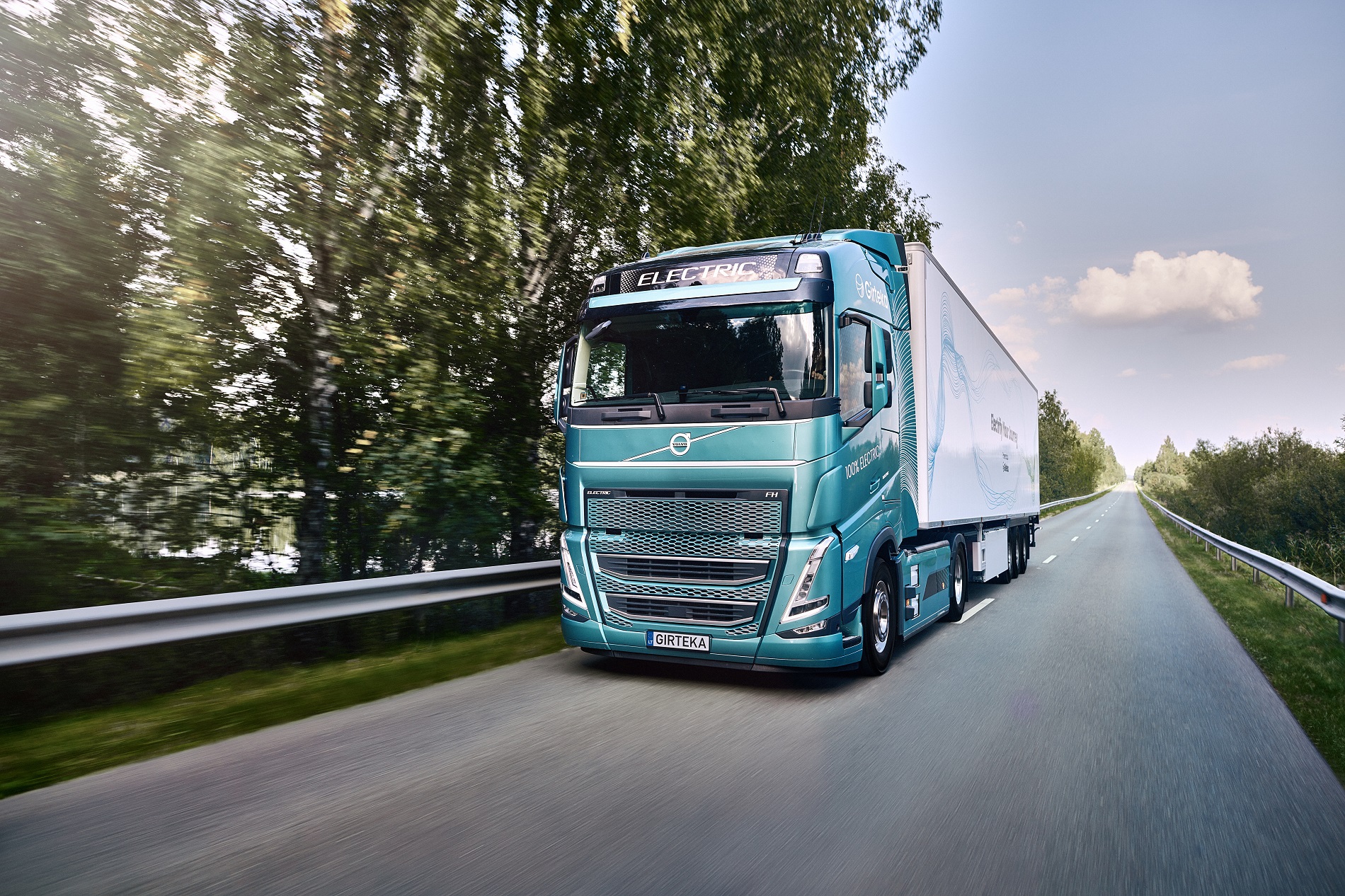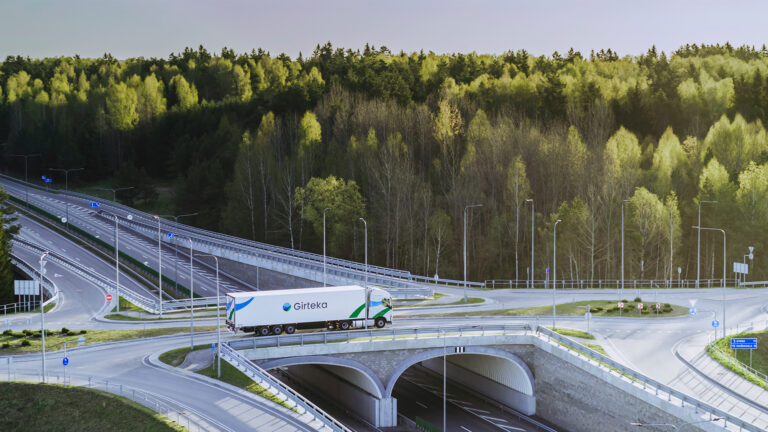Share it:
Today’s main challenge in the logistics and transport sectors is decarbonization. Electric trucks, intermodal transport, hydrogen powered vehicles, and biofuels are the most common solutions currently being discussed in terms of tackling the European Union’s (EU) ambitious emission reduction targets. However, understanding the discussion requires deep knowledge of details and technicalities and hard to understand by a non-expertise audience. Today’s available content is fragmented and lacks an overall holistic perspective on what can be achieved and how, who will stand to gain and who will end up losing in the drastic transition to Net Zero by 2050. Most importantly, what opportunities does today’s goal of decarbonization of road transport present in terms of sustainable solutions for companies.
Exploring pathways to sustainability
Girteka, a leading road transport company, providing exceptional services in the logistics of temperature-controlled (food & `beverages, pharma products) and high-value cargo in Europe, is launching an educational initiative to bring forward valuable insights and information about the decarbonization of road freight transport. The idea behind this campaign is to convey the message that the activities and direction the EU is heading toward should be practical, realistic, and beneficial for all stakeholders within the entire supply chain in the long term, as well as for the communities in which we work and live.
In the upcoming weeks, through various digital channels, Girteka will be sharing insights on battery-electric heavy-goods vehicles, their usage, drivers’ experiences, and challenges that many businesses are facing today when it comes to achieving their sustainability goals. The campaign will also explore topics related to intermodal rail transport – what is possible today and what plans have been put into place to improve the infrastructure? Later on, Girteka will analyse the possibilities of reducing emissions from existing assets through the implementation of solutions like HVO100 or HVO mass balancing. Also as a final part the initiative will also focus on the new requirements of the Corporate Sustainability Reporting Directive (CSRD) in terms of reporting emissions from transport, which can be easily incorporated into the Environmental, Social, and Governance (ESG) approach.
“Today, everyone talks about sustainability. We all have high ambitions, yet we are still struggling to understand how we are going to achieve them. Our campaign aims to provide a clearer and more understandable view of the current situation: what options are available today and what would be the consequences of implementing those options for every stakeholder, starting from road transportation companies like us, through manufacturers and maintenance/infrastructure providers up to the end customers,” says Tomasz Weber, Head of Corporate Communications for Girteka Group.
Sustainability in the digital age
Girteka’s sustainability campaign will consist of several activities and will primarily be presented in digital channels. Starting with dedicated landing pages providing information about sustainable solutions available today, to in-depth articles and insights analysing infrastructure, networks, key roadblocks, and experiences gained so far, to discussions with experts in the form of podcasts, interviews, and video case studies.
“Our goal is to foster a common understanding before discussing specific approaches and ways to achieve carbon neutrality by 2050 in Europe. There is a lot of hard-to-understand information and stereotypical thinking when talking about sustainability. Yet we need to be aware that today’s decarbonization goals are not solely the responsibility of transport companies. This is a global challenge, where cooperation is needed to achieve those very ambitious goals,” emphasizes Viktorija Terekė, Head of Sustainability at Girteka.
As today’s discussions on this topic mainly occur online and through social networks, Girteka’s campaign on sustainability will present all the relevant information, the latest insights as well as expert discussions in the digital landscape. This includes LinkedIn, Facebook and X fan pages, where users will be able to follow and stay updated, as well as be properly informed about sustainable transport solutions.
The goal is not only to provide information, but to cultivate a common understanding and a platform for discussion where every stakeholder is involved. Central to this campaign is the idea that sustainability in logistics is a multifaceted challenge that necessitates a holistic, informed approach. This campaign will serve as an open invitation for all players in the logistics field to embrace sustainability not just as a corporate responsibility, but as a shared mindset among businesses, customers, producers, service providers, and individuals alike.



